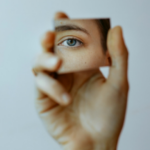What is body dysmorphic disorder?
Body dysmorphic disorder (BDD) is a psychiatric illness that affects about one in 50 people.
People with BDD are constantly thinking about or worried by some aspect of their appearance that isn’t noticed by other people.
They have repetitive behaviours or thoughts that stop them from going about normal activities, like socialising or going to school or work.
Muscle dysmorphia is a form of BDD in which someone thinks they aren’t muscly enough. They might obsess about their diet or exercise to the point that it dominates their life.
People with muscle dysmorphia are more likely than others to use steroids to help them build muscle.
BDD is usually diagnosed in teenagers who have shown some signs of the problem for a few years, but it can develop at any stage of life.
There is no cure for BDD, but treatment can make it possible to live in a way that minimises the impact of the disorder.
BDD can be managed by a type of psychological treatment called ‘cognitive behavioural therapy’, sometimes in combination with antidepressant medication.
Treatment helps reduce the impact of the thoughts and behaviours that dominate the lives of people with BDD.
Learn more about body dysmorphic disorder on our health topic page
What causes body dysmorphic disorder?
The cause of BDD is not known. People with BDD are more likely than normal to have a mother, father, brother or sister with the disorder, so it might be inherited to some extent.
Psychological factors contribute to the development of BDD. Childhood trauma is common in people with BDD, and they’re more likely than others to have been teased about their appearance.
Social pressures might contribute to some people developing BDD. It’s difficult to avoid images and messages about the value of physical perfection, so people who feel like they don’t meet these standards could feel constantly reminded about flaws they think they have in their appearance.
What your partner could be feeling
Many people with BDD hide their appearance concerns from other people. They might not want to draw attention to their appearance or could fear being judged about their concerns.
BDD can cause significant distress, repetitive behaviours that prevent people from living normal lives, or both. You might notice they spend a lot of time checking their appearance in the mirror.
They might take a really long time getting ready to leave the house or may not want to go out at all.
People with muscle dysmorphia might spend hours each day working out and become distressed if they can’t stick to their exercise routine.
They might obsess over their diet and use a variety of supplements and other substances to try and achieve their idealised appearance.
Ritualistic behaviours of people with BDD include continually seeking reassurance about how they look. They might ask you how they look and not believe you when you say they look fine.
Sometimes reassurance can provide temporary relief, but the distress persists, so they seek reassurance again and again.
Depression and anxiety are common in people with BDD. In males, depression can cause anger, aggression and irritability; anxiety can cause physical symptoms like sweaty hands, dizziness and headache and can make males feel like they’re losing control.
Use of alcohol and other drugs is more common in people with BDD than others, like for depression and anxiety.
People with BDD usually seek treatment to ‘fix’ the problem they see with their appearance, but this is almost always unhelpful. The problem is what they think about their appearance, not how they actually look.
People with BDD often might not even realise they have a problem, so if it’s not raised with them, they’re unlikely to get help.
Some people with BDD want their doctor to raise the issue so they can discuss it, but they’re too embarrassed to bring it up themselves.
What you could be feeling
People with BDD can be so preoccupied with their appearance that they ignore others. They can seem selfish and self-centred. You may feel overlooked, ignored, angry, frustrated and isolated.
The time taken up by ritualistic behaviours can result in partners and family members running late or missing out on important things. BDD can be disruptive to everyone in the household.
You might feel despondent and powerless to relieve the concerns of someone close to you who has BDD. It’s important to realise the person with BDD is not simply vain or selfish.
Dealing with someone who has BDD can be exhausting, so it’s really important to look after yourself and seek the help and support of family and friends.
What to do about dysmorphic disorder
BDD is an illness that needs proper treatment. If you have a loved one who you think has problematic concerns about their appearance, try not to be dismissive or critical.
Also, try not to reassure them they look fine if they ask for reassurance because engaging in activity and conversation related to their delusion helps to propagate it.
It’s best if you tell them that you have noticed how worried they seem about their appearance and tell them about the behaviours you have observed (for example, excessive grooming, repeatedly picking or touching part of their body, constantly seeking reassurance).
Tell them you think they might have BDD and offer to help them get treatment. Be supportive, understanding, patient and caring.
The repetitive behaviours associated with BDD stop people from living normal lives. If you participate in the behaviours, it may reinforce them.
If you think a loved one might have BDD, tell them about your concerns and suggest they seek help by seeing their general practitioner.
Learn more about body dysmorphic disorder on our health topic page














